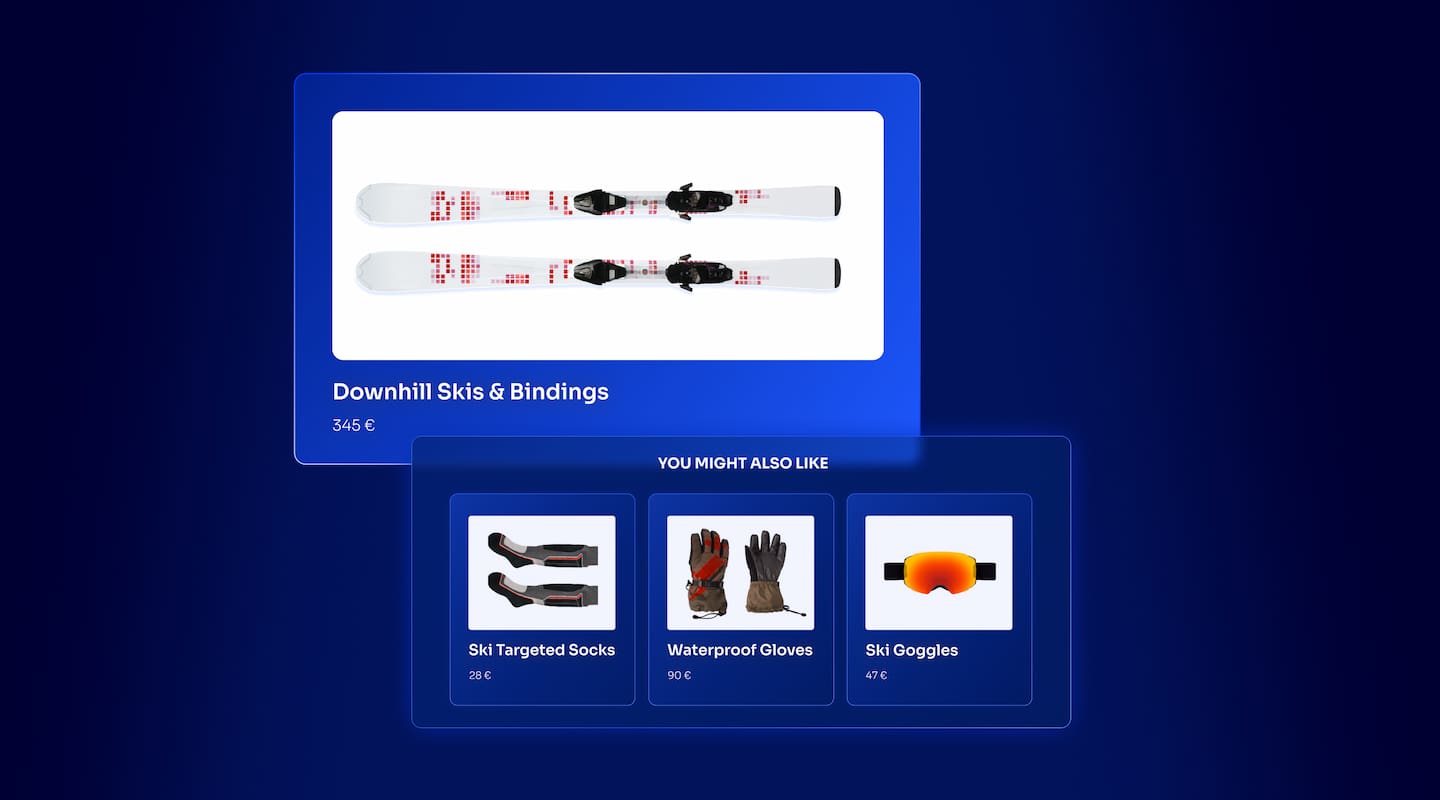Add InstantSearch and Autocomplete to your search experience in just 5 minutes
A good starting point for building a comprehensive search experience is a straightforward app template. When crafting your application’s ...
Senior Product Manager


A good starting point for building a comprehensive search experience is a straightforward app template. When crafting your application’s ...
Senior Product Manager

The inviting ecommerce website template that balances bright colors with plenty of white space. The stylized fonts for the headers ...
Search and Discovery writer

Imagine an online shopping experience designed to reflect your unique consumer needs and preferences — a digital world shaped completely around ...
Senior Digital Marketing Manager, SEO

Winter is here for those in the northern hemisphere, with thoughts drifting toward cozy blankets and mulled wine. But before ...
Sr. Developer Relations Engineer

What if there were a way to persuade shoppers who find your ecommerce site, ultimately making it to a product ...
Senior Digital Marketing Manager, SEO

This year a bunch of our engineers from our Sydney office attended GopherCon AU at University of Technology, Sydney, in ...
David Howden &
James Kozianski

Second only to personalization, conversational commerce has been a hot topic of conversation (pun intended) amongst retailers for the better ...
Principal, Klein4Retail

Algolia’s Recommend complements site search and discovery. As customers browse or search your site, dynamic recommendations encourage customers to ...
Frontend Engineer

Winter is coming, along with a bunch of houseguests. You want to replace your battered old sofa — after all, the ...
Search and Discovery writer

Search is a very complex problem Search is a complex problem that is hard to customize to a particular use ...
Co-founder & former CTO at Algolia

2%. That’s the average conversion rate for an online store. Unless you’re performing at Amazon’s promoted products ...
Senior Digital Marketing Manager, SEO

What’s a vector database? And how different is it than a regular-old traditional relational database? If you’re ...
Search and Discovery writer

How do you measure the success of a new feature? How do you test the impact? There are different ways ...
Senior Software Engineer

Algolia's advanced search capabilities pair seamlessly with iOS or Android Apps when using FlutterFlow. App development and search design ...
Sr. Developer Relations Engineer

In the midst of the Black Friday shopping frenzy, Algolia soared to new heights, setting new records and delivering an ...
Chief Executive Officer and Board Member at Algolia

When was your last online shopping trip, and how did it go? For consumers, it’s becoming arguably tougher to ...
Senior Digital Marketing Manager, SEO

Have you put your blood, sweat, and tears into perfecting your online store, only to see your conversion rates stuck ...
Senior Digital Marketing Manager, SEO

“Hello, how can I help you today?” This has to be the most tired, but nevertheless tried-and-true ...
Search and Discovery writer
With the economic downturn, I hear from customers all the time about the need to do more with less. How, I’m asked, can Algolia help them not only grow sales and improve margins, but with fewer resources at their disposal?
The answer I’m most excited about today is semantic search. Semantic search is one of the most versatile sets of technologies you can add to site search today. Retailers, for example, can make it vastly easier for their customers to find the products they’re looking for. Semantic search improves search relevance, ranking, and customer experience. Moreover, it can automate or at least drastically reduce the effort and resources required to improve search relevance.
By the end of this article, I hope to have explained what semantic search is, how it reduces resources and expands top-line growth, and where it’s headed.
Whereas keyword-based search only looks up keywords (and their alternative forms), semantic search understands the meaning and often the intention of what people are searching for.
Take for example a search for a “prom dress.” Keyword search engines look for the words “prom” and “dress” to find the best match. Behind the scenes, keyword engines have some built-in features — typo tolerance, word agglutination, stemming, and many other natural language techniques – for finding common alternatives.

However, if your customer types in “homecoming dress” or “sequin gown”, they won’t find the prom dress. You’d have to create synonyms that state that “homecoming dress” and “prom dress” are similar ideas.
Semantic search solves this for you. It understands that these terms are synonymous or closely related — no additional hacks required to make it work.
Semantic search was once only the provenance of entrenched behemoths like Google, Amazon, and Microsoft (Bing). These companies invested heavily to enable customers to type in just about any query to get great results. Amazon, for example, employs nearly 2,000 engineers and data scientists to perfect on-site search.
What took Amazon 20+ years to engineer can now be done by anyone instantly at a fraction of the cost. Today, thanks to newer machine learning models, any business can add semantic search to its website to drive better search results, higher revenue, and happier customers.
Semantic search includes multiple technologies and processes including vector embeddings. Vectors power some of the most popular services we use today, such as Netflix recommendations, Google image search, and chatbots. Vectors are mathematical models that represent words. Machine learning models produce vectors from data, and those vectors are used to measure the distance between the data. They can contain thousands of points, but to simplify it, we can look at simple three-dimensional models like the ones below.

The training set for these machine learning models can be massive, often composed of billions of documents which help capture the relationships between words. For example, with our own vector solution (more on this below), we use a variety of AI based language models including Universal Sentence Encoder and various sentence transformers. It enables our search engine to know that “gown” and “dress” are closely-related ideas.
That’s how vector search is able to understand the relationship between terms to return good results even without the use of matching keywords.
Vector search is amazing, but it works even better with keyword search than by itself!
Vector search works well for longer queries, descriptive queries, or questions. But vector search is slow and expensive to scale. Keyword search is faster than vector search and often still much better for certain kinds of queries like single-word queries or exact phrase matches. What if you were able to get the best of both without the tradeoff of speed or accuracy?
This is where hybrid search comes in. A hybrid search engine can deliver better results than either keyword search or vector search alone. The trick is in making it fast and performant, even for vector queries. At Algolia, we do that with a technology we call neural hashing. We can convert vectors into binary hashes — a smaller, more portable data set that can be run on commodity hardware rather than specialized GPUs.
For your customers, Algolia-powered hybrid search means faster, more accurate search, discovery, and recommendations. Better search results mean a better user experience and a higher likelihood of on-site conversion and brand loyalty.
For you, it means an ability to do more with less — there’s no more need to create lists of synonyms, write if/then rules, or stuff your product pages with additional keywords and tags. New products added to your catalog are instantly searchable. You have more time to devote to other areas of your business.
There’s nothing else like it on the market: incredible search out of the box with significantly less — often zero — effort. Hybrid search is coming soon!
Powered by Algolia Recommend